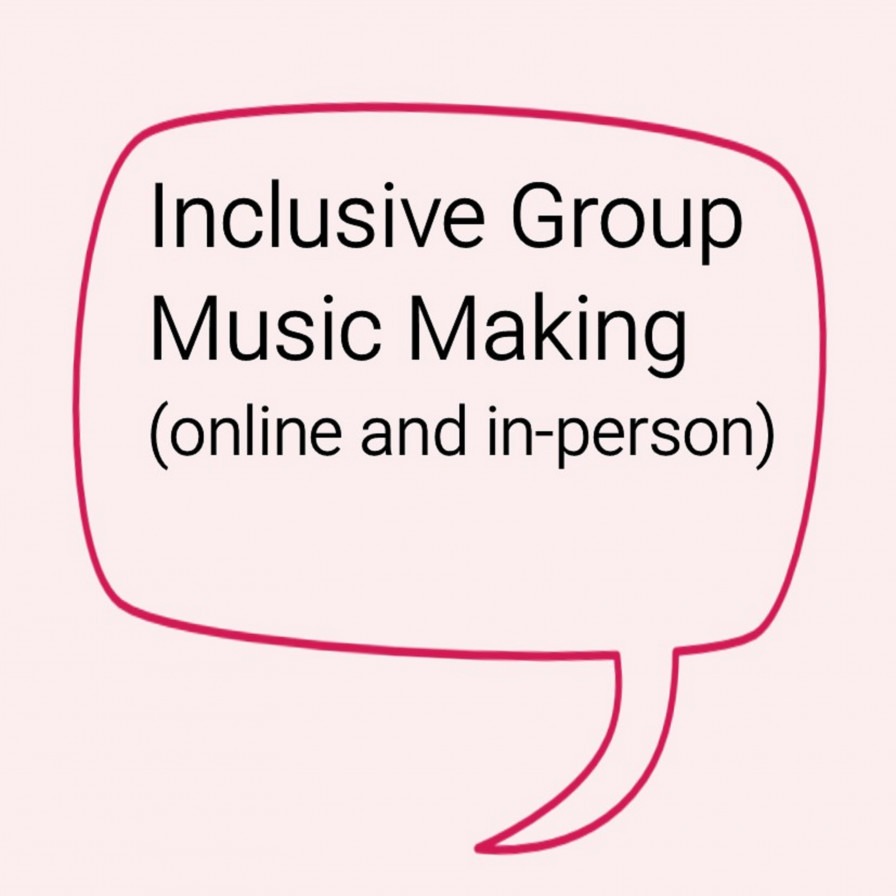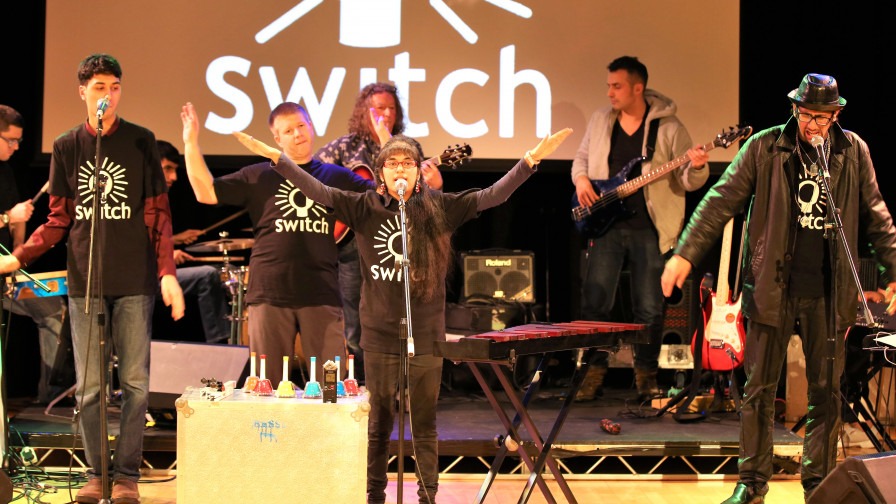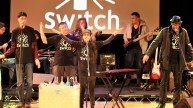Music Leader Exchange 3: Inclusive Group Music Making

This Music Leader Exchange session was led by Dan Whitehouse. To learn more about what he considers when delivering inclusive group music sessions, watch his Inclusive Ensembles videos series here.
This session was focused on the premise that a successful session starts with you, the Music Leader. The most important thing, according to Dan, is that you get in to the right headspace and allow yourself to take a fluid approach, cultivating the creativity of the participants.
Get in to the mindset that you, the Music Leader and the participants are equals.
- Take a backseat and let the participants guide each other.
- The Music Leader’s role is more like a cheerleader than a teacher. This can take practice, but start by experimenting with Call and Response activities then encourage the participants to take the lead.
Cultivate your own creative headspace and build up that creative energy within the group.
- Freedom to explore creativity at the groups pace is key.
- Participants often find their creative expression in moments when the session is at its most relaxed.
- Press record on your Dictaphone at the very beginning and forget about it until everyone has left the session.
- Listen back to the recording and pick out powerful moments (musical or verbal) and play it back to participants to affirm their creativity.
Consider your most treasured creative practice. When it’s going really well, what are the contributing factors?
- Being spontaneous
- When you’ve built a rapport with the participants
- An environment of mutual respect
- When participants take the opportunity to teach each other
- When there’s more musical communication than talking. One short bold statement can be very effective, especially as an aid to songwriting.
Be playful! Find you inner child!
Check out ‘The Frustrated Songwriter’s Handbook’ for lots of game ideas, or try these:
- Rhythm call and response games like ‘Don’t Clap This One Back’
- Melody Anagram – an inclusive and accessible way of writing a melody by rearranging the notes of an existing one.
- Radio Game – switch on the radio and ask participants to sing back what they heard. It will be their own variation and a good starting point for a melody.



